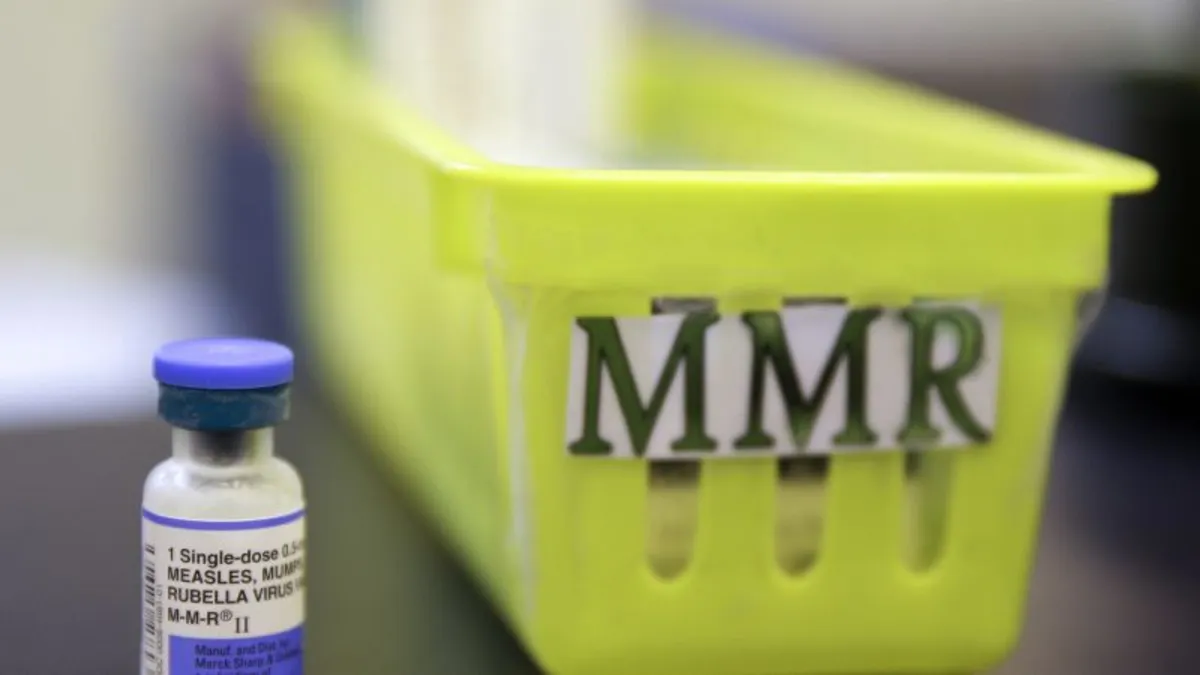
Recently, there has been a noticeable increase in measles cases across the United States, particularly in regions with lower vaccination rates. According to the US Centers for Disease Control and Prevention (CDC), there were 285 reported cases in the US last year, marking the highest number since 2019. Already in 2025, cases have emerged, with two instances detected in metro Atlanta last week. This was followed by a confirmed case in New Mexico, and an outbreak in West Texas is currently expanding, with 24 cases reported by the local health department. Additional cases have been identified in Alaska, Rhode Island, and New York City.
Measles is a highly contagious airborne illness known for causing a rash, fever, red eyes, and cough. In severe situations, it can lead to complications like blindness, pneumonia, or encephalitis, which is brain swelling, according to the World Health Organization (WHO). Tragically, the illness can sometimes be fatal.
Before the introduction of the measles vaccine in 1963, the virus claimed an estimated 2.6 million lives annually worldwide. In 2023, WHO estimated that there were 107,500 measles-related deaths, primarily in countries with low vaccination rates. Dr. Paul Offit, director of the Vaccine Education Program at the Children's Hospital of Philadelphia, stated, “We’ve eliminated the memory of measles. I don’t think people remember how sick that can make you.”
Experts emphasize that vaccination remains the best protection against measles. The measles, mumps, and rubella (MMR vaccine) is 93% effective after one dose and 97% effective after two doses, as stated by the CDC. Officials advise that children should receive two doses of the MMR vaccine: the first dose between 12 and 15 months and the second around age 4, before starting school.
Dr. Christina Johns, a pediatric emergency physician at PM Pediatrics, urges parents to consider the broader public health implications of vaccinating their children. “When people consider their choice about vaccinating their child, it isn’t just about their own individual child, but this is a public health issue…If we just stop thinking about the health of the population, we are going to see more and more vaccine-preventable illness, outbreaks occur,” she said.
Across the country, the rise in measles cases is largely attributed to declining vaccination rates. This decline is fueled by misinformation and disinformation campaigns. A record number of US kindergartners received exemptions from required vaccinations last school year, leaving over 125,000 new schoolchildren without coverage for at least one state-mandated vaccine, according to CDC data published in October.
The US Department of Health and Human Services aims for at least 95% of children in kindergarten to receive two doses of the MMR vaccine, a threshold necessary to help prevent outbreaks of this highly contagious disease. Unfortunately, the US has fallen short of this target for four consecutive years.
Titer tests, available at primary-care offices, can assess immunity against measles. However, some doctors believe these tests are unnecessary if individuals have received both recommended doses of the MMR vaccine or have previously contracted measles.
Titer tests detect the presence of antibodies, which are infection-fighting proteins produced by immune cells in response to pathogens. These antibodies can remain in the system for years, helping to combat repeat or future infections. Even if titer tests don’t show high levels of antibodies, immune memory cells may still respond quickly to the virus, according to Offit.
Dr. William Schaffner, an infectious disease expert at Vanderbilt University Medical Center, highlights that titer tests are particularly useful for individuals uncertain of their vaccination status. This situation often arises due to lost vaccination records or changes in medical practices.
For those vaccinated with the first version of the measles vaccine—a killed-virus vaccine used between 1963 and 1968—or unsure of their vaccine type, the CDC recommends at least one dose of the MMR vaccine. Experts suggest that individuals who received two doses of the current MMR vaccine are likely to have lifelong immunity against measles.
Dr. Christina Johns notes, “Less than 1% of people who are fully vaccinated will have waning immunity to measles to the point where they are susceptible to infection.” However, during mumps outbreaks, local authorities may recommend additional MMR doses for individuals at risk of heavy exposure.
Dr. Schaffner mentions that some people might find low antibody titers after testing and, in consultation with their physicians, opt for an additional vaccine dose. While there appears to be no harm, the benefit of this action remains uncertain.